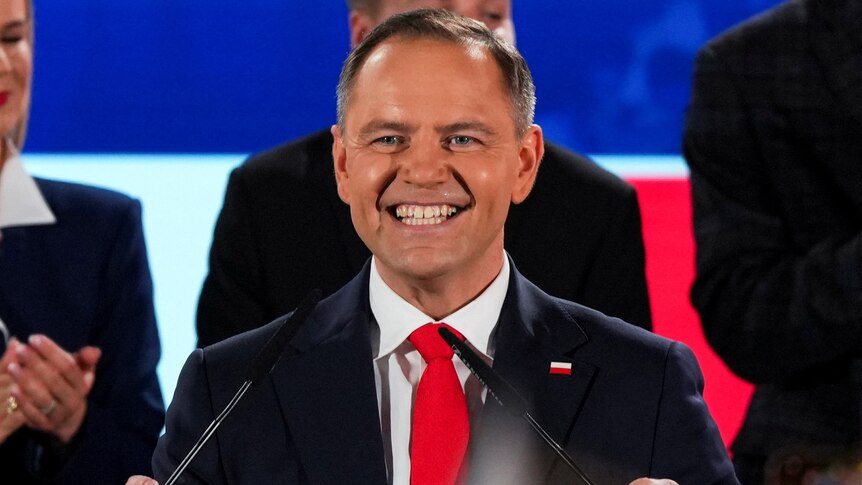Nationalist candidate Karol Nawrocki narrowly clinched victory in Poland’s presidential runoff, election results revealed on Monday, dealing a major blow to Prime Minister Donald Tusk’s centrist, pro-European government.
Nawrocki secured 50.89 per cent of the vote, edging out liberal challenger Rafal Trzaskowski, who garnered 49.11 per cent, according to the state election commission.
The outcome is expected to deepen political gridlock in Warsaw. As president, Nawrocki holds veto power and is widely expected to block key elements of Tusk’s reform agenda, particularly efforts to liberalise abortion laws and reverse judicial overhauls introduced by the previous Law and Justice (PiS) administration.
A historian and amateur boxer posted that Nawrocki ran with the backing of PiS and cast the vote as a referendum on Tusk’s 18-month-old coalition government. “The referendum on the dismissal of the Tusk government has been won,” PiS lawmaker Jacek Sasin posted on X.
Both candidates initially claimed victory following the release of a tight exit poll late Sunday, but official results confirmed Nawrocki’s narrow lead. Trzaskowski, the liberal mayor of Warsaw, ran under the Civic Coalition (KO), the ruling party in parliament.
Nawrocki’s victory, reminiscent of nationalist trends inspired by figures like former U.S. President Donald Trump, is seen as a win for conservative forces across Europe. Hungarian Prime Minister Viktor Orban hailed the result as a fantastic victory, while Romania’s defeated hard-right candidate George Simion declared, “Poland WON.”
Financial markets reacted swiftly to the news. Poland’s benchmark stock index fell more than 2% in early Monday trading, and the zloty weakened against the euro, reflecting investor concerns over likely policy paralysis.
Nawrocki, 42, is a political newcomer who previously headed Poland’s Institute of National Remembrance. He campaigned on promises to defend national sovereignty, prioritise Polish citizens over foreign nationals, including Ukrainian refugees and resist what he described as overreach from EU institutions in Brussels.
While Poland’s parliament retains the bulk of legislative power, the presidency is a critical counterweight with the authority to veto laws. The new dynamic sets the stage for potential clashes between Nawrocki and Tusk’s administration, which has been striving to restore ties with the EU and dismantle PiS-era judicial reforms that Brussels has criticised as threats to democratic norms.
European Commission President Ursula von der Leyen expressed hope for continued cooperation with Warsaw despite the result, saying she remained confident in maintaining “very good cooperation” with Poland.
Sunday’s high-stakes vote drew a record turnout of 71.31 per cent for a presidential runoff. It followed closely on the heels of a centrist victory in Romania’s presidential election, where liberal Bucharest mayor Nicusor Dan defeated hard-right opponents.
Despite controversy surrounding Nawrocki in the final days of the campaign, including scrutiny over his acquisition of a property from a pensioner and admissions of involvement in staged street fights, he managed to rally conservative voters with a message centred on national identity and sovereignty.
Borys Budka, a KO lawmaker and Member of the European Parliament, warned that PiS might now attempt to “overthrow the legal government,” adding, “This may be a big challenge for the government, which will be blocked when it comes to good initiatives.”
However, it is a tense period in Polish politics, with the president and parliament likely at odds on major policy issues.



